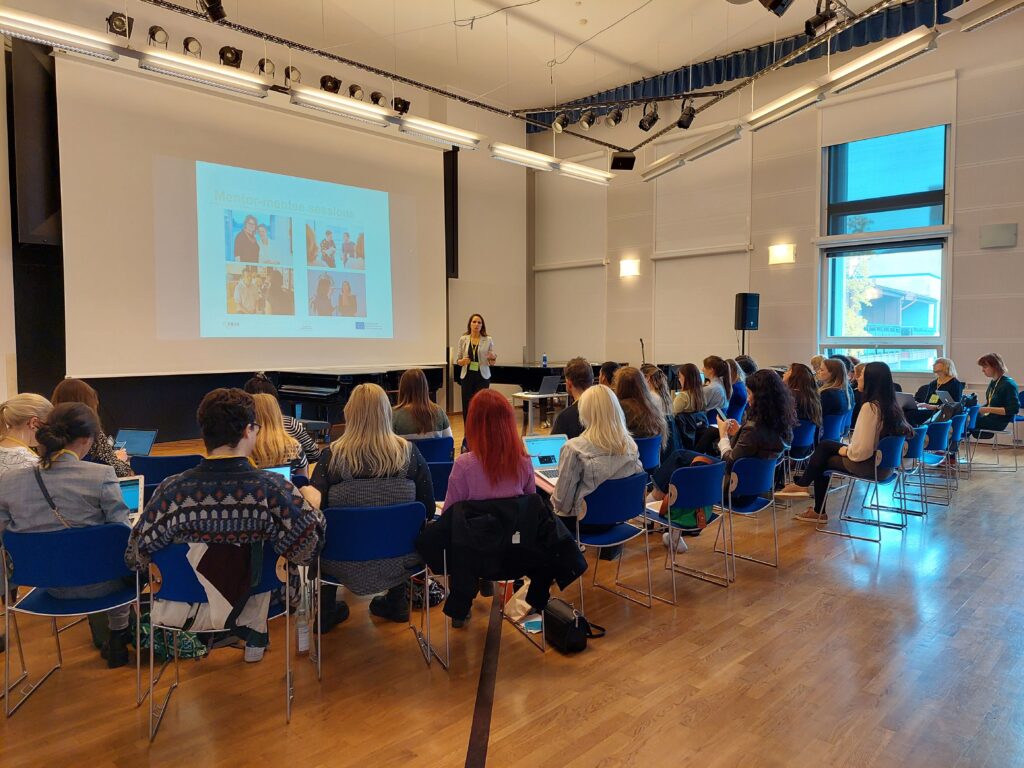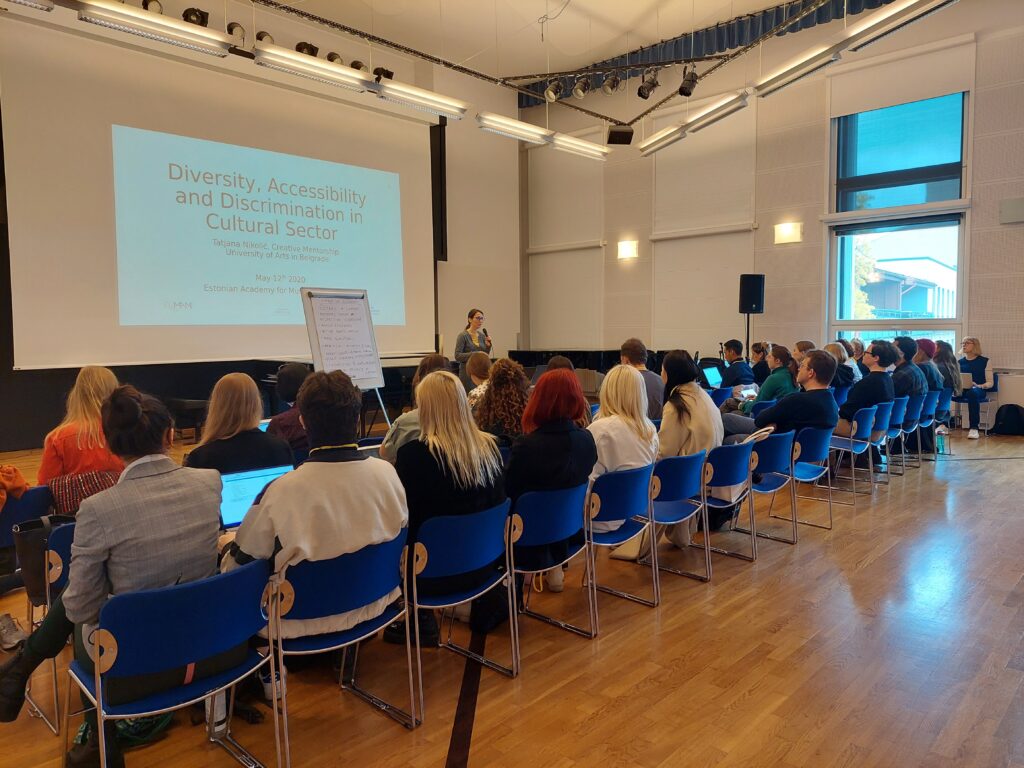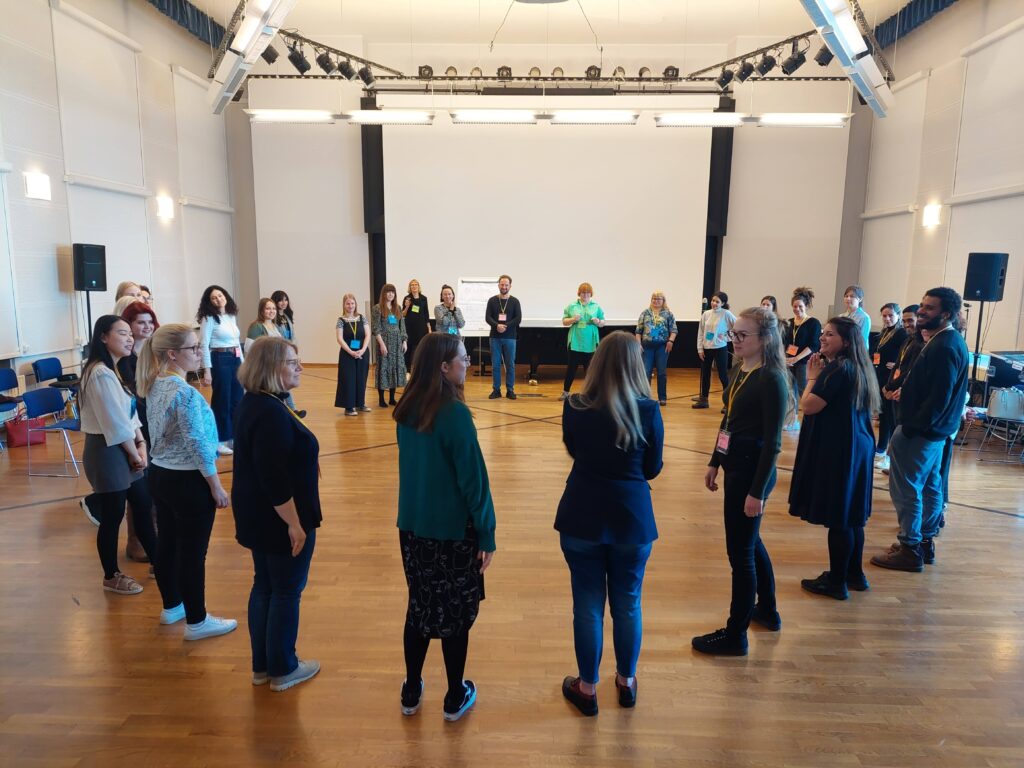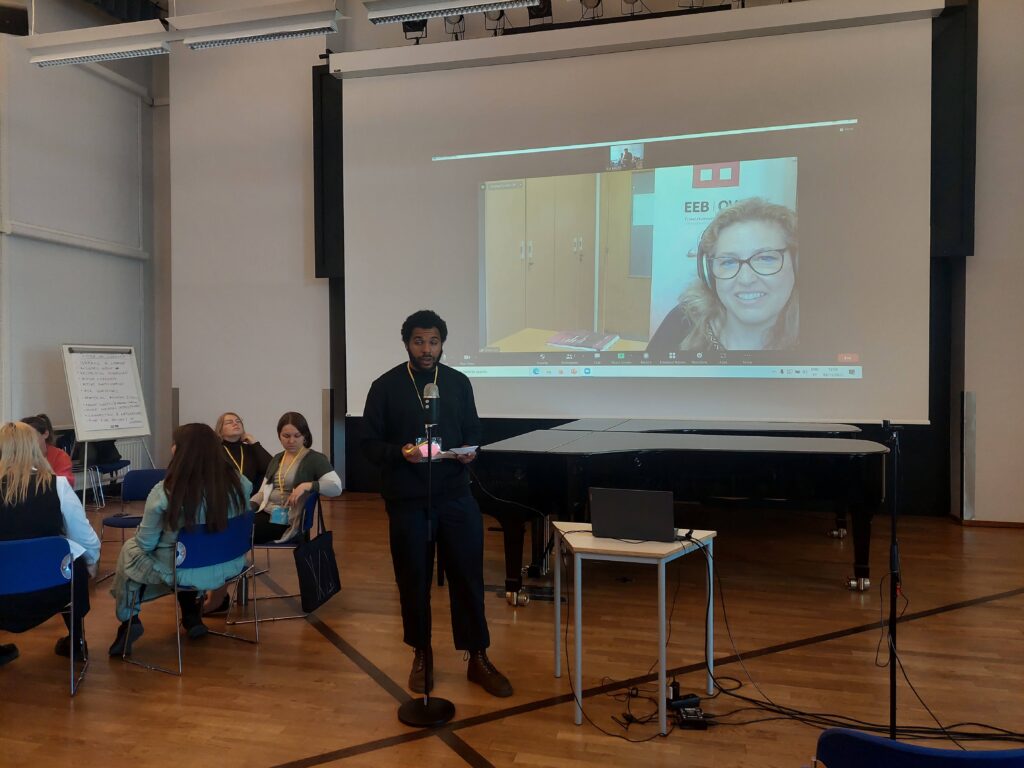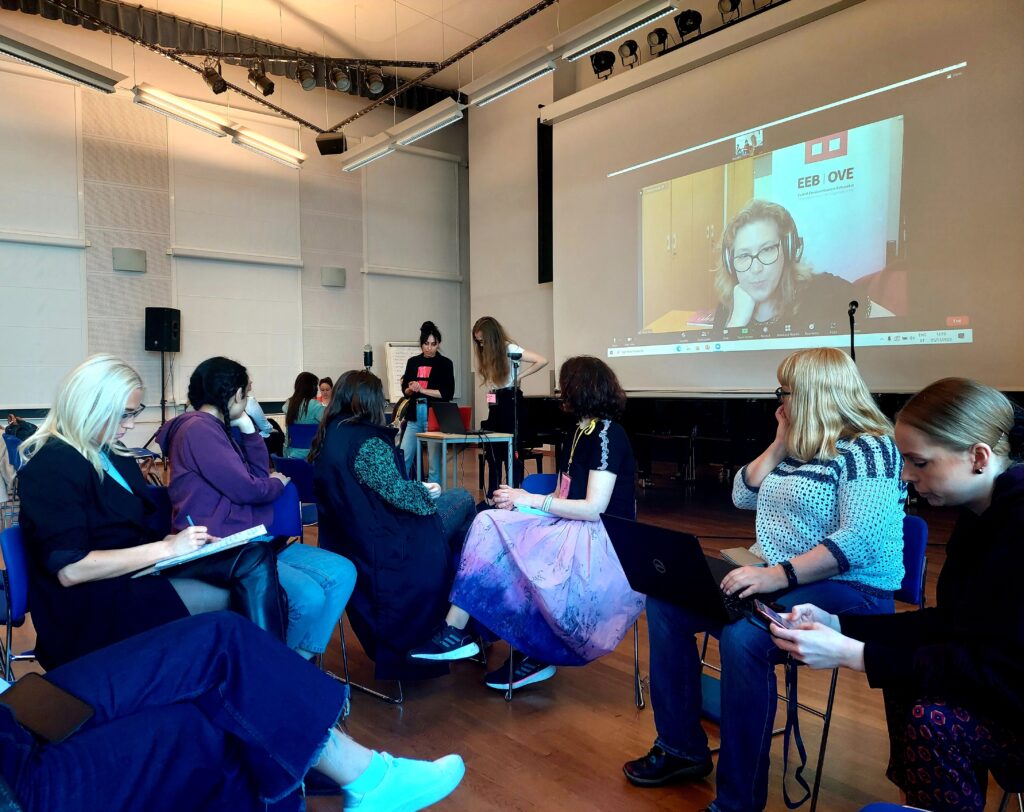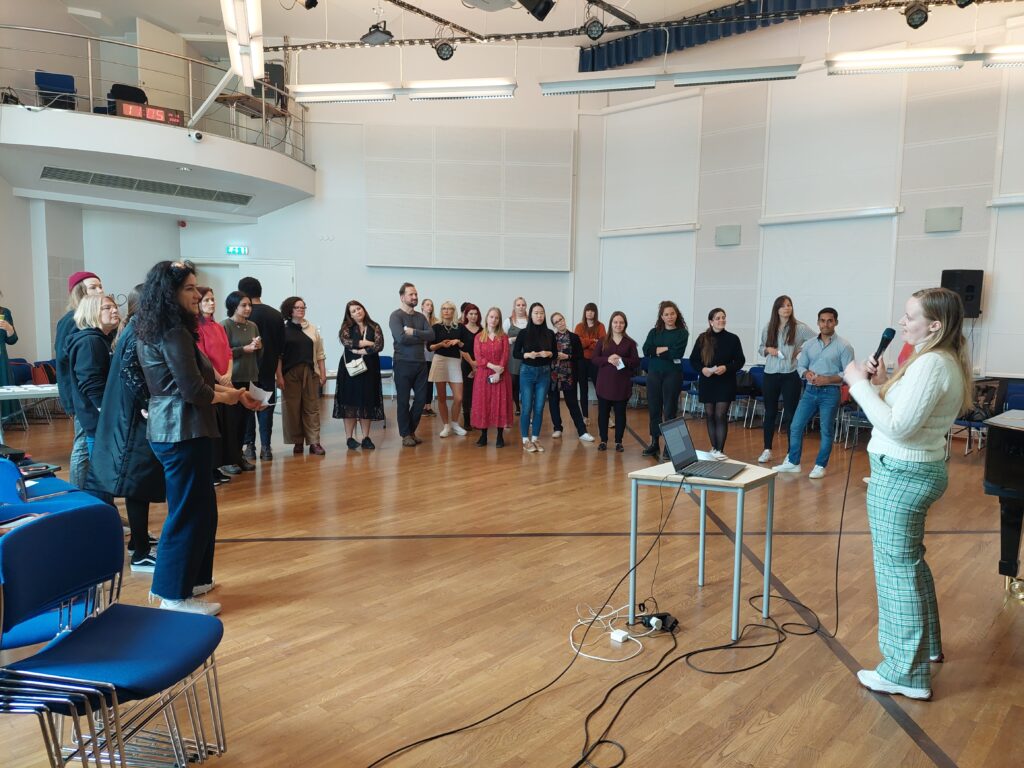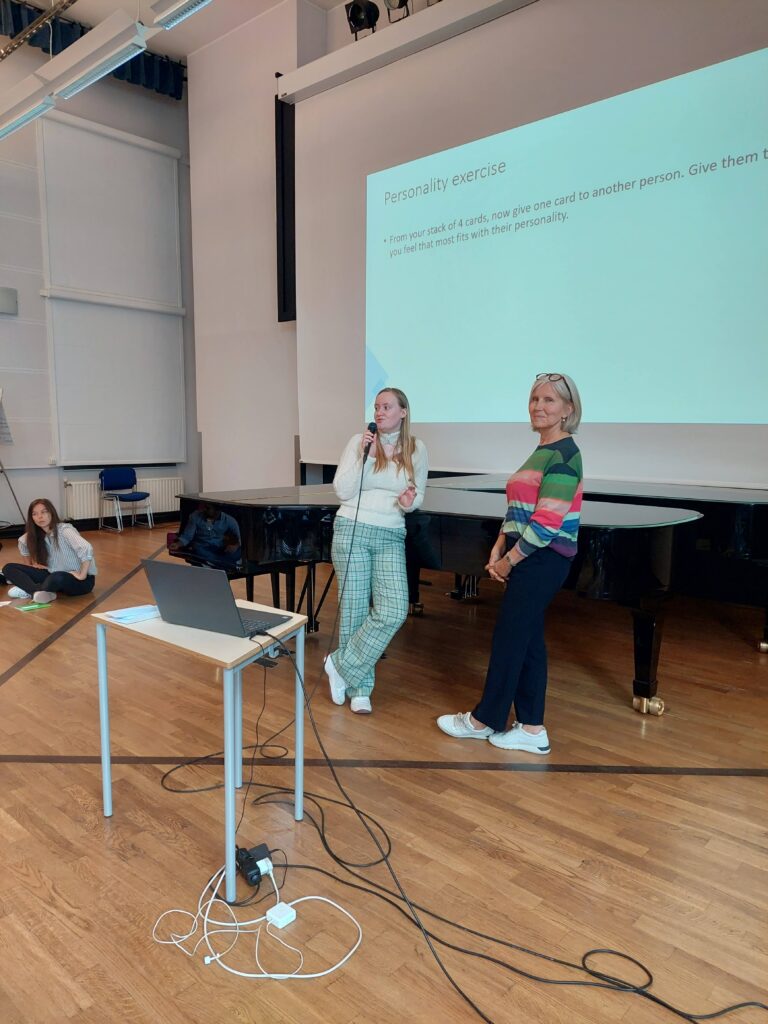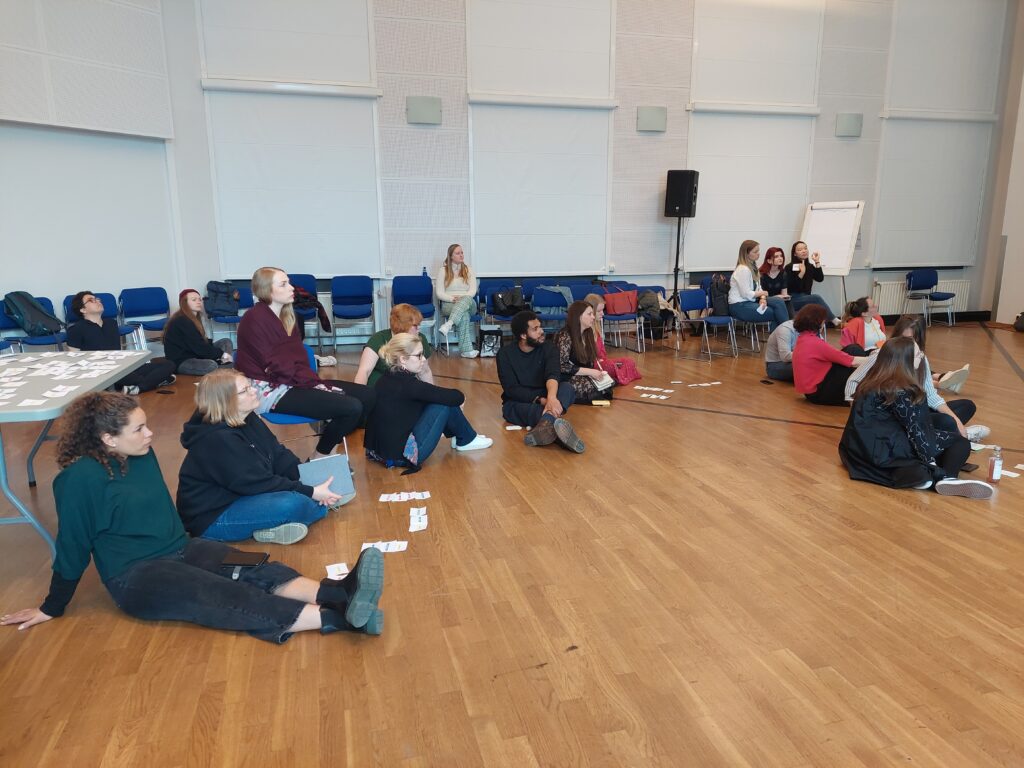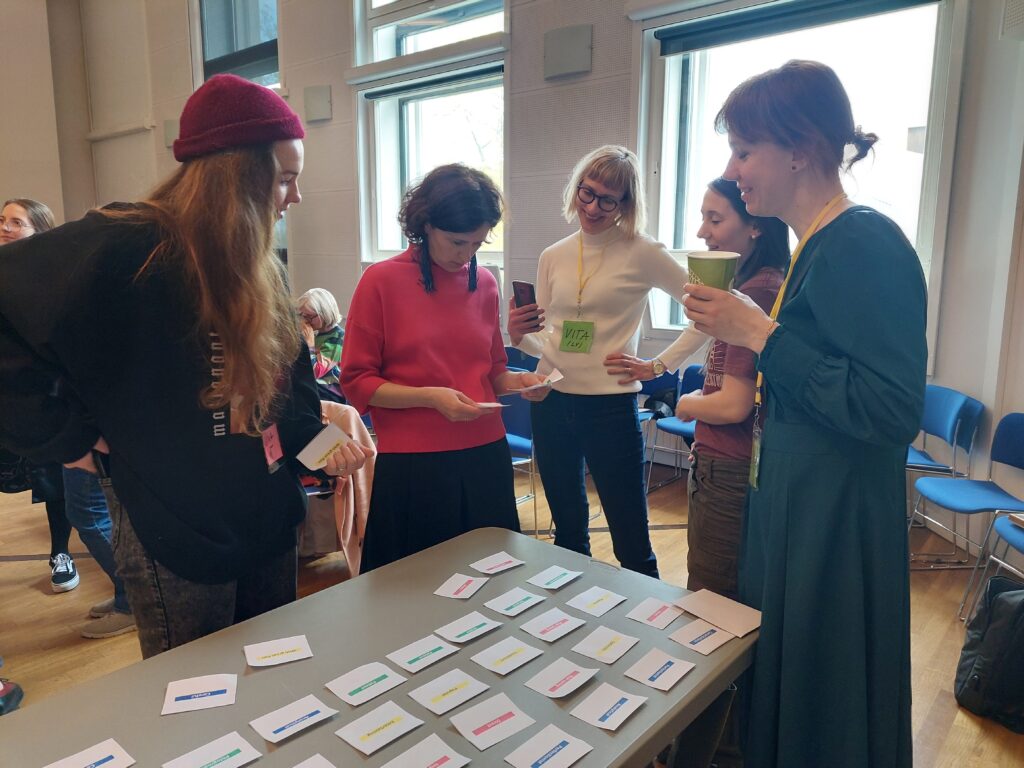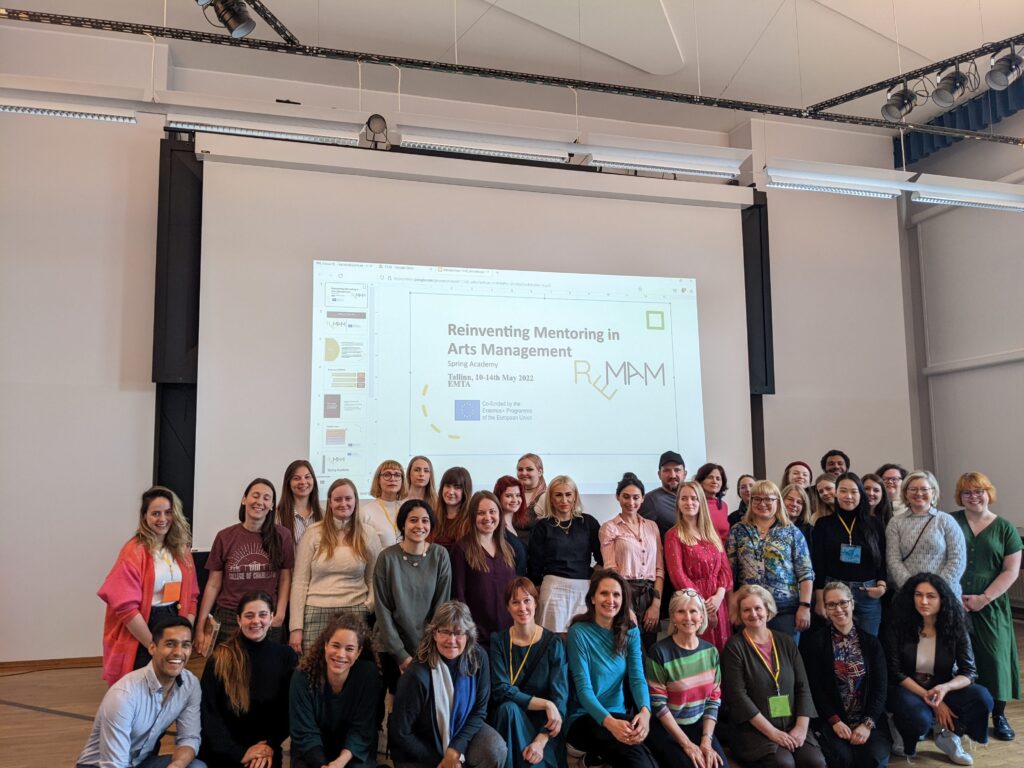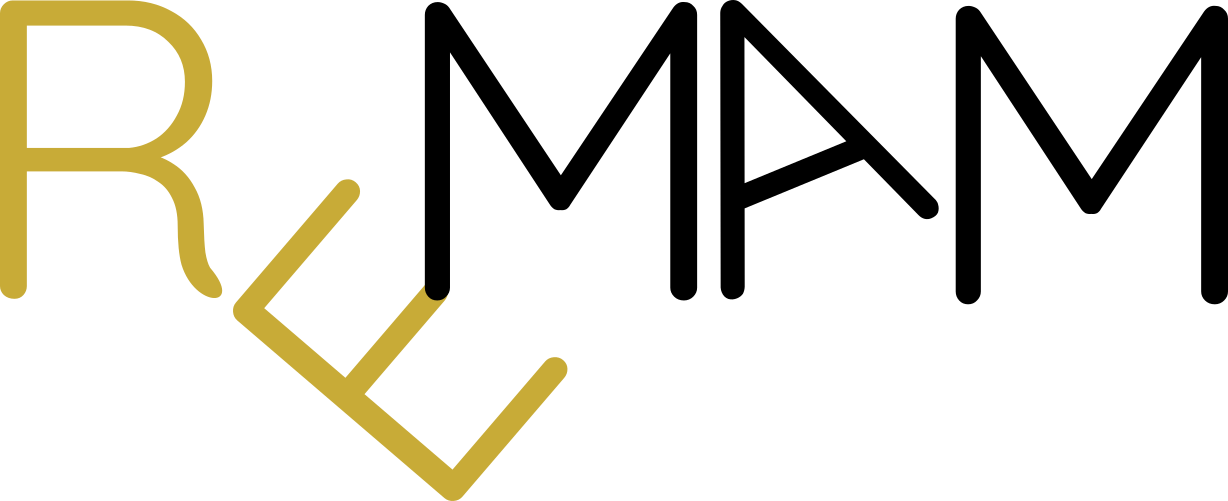Mentoring Spring Academy along with the consortium’s project meeting was held in Tallinn from 9 to 14 May, bringing together more than 30 cultural management students from the Estonian Academy of Music and Theatre , the Latvian Academy of Culture and University of Antwerp. During the REMAM spring academy the students became familiarized with the topic of mentorship with a special focus on questions on cultural management and roles of mentor and mentee. The programme aimed also to improve the understanding, knowledge, information, and skills of the future professionals in the field of cultural management in the context of current existing mentoring programs in culture. Additionally, the Spring Academy underlined also to the need of developing mentoring methodology in this sector and the introduction of more formal mentoring support for young professionals in art and creative industries in different European countries.
Further topics discussed during the Mentoring Spring Academy involved mentoring principles and methods, mentoring and ethics building, professional identity development through mentoring, accessibility, equality and diversity in the cultural sector, mentoring as a tool for community development, goal setting, online mentoring and more. The Creative Mentorship team shared its ten years of experience in creating and implementing a mentoring programme for the culture, arts, creative industries and media sectors; its knowledge of the quality of mentoring relationships, prerequisites, benefits, and limitations in mentoring.
The students participating in the REMAM Spring Academy had three kinds of assignments in addition to the active participation in all classes:
- They had to read the material assigned beforehand in order to have basic knowledge of the theme that allowed them to start building and co-creating new knowledge jointly;
- During the Academy, they worked intensively as guided by the session lecturers, individually and in groups;
- To complete the REMAM academy, they needed to provide a learning diary demonsrtating being familiar with the readings and the contents of the lectures.
Lectures and workshops were given by members of all the REMAM team: by Dragana Jevtić, founder and director, and Tatjana Nikolić, program associate of Creative Mentorship and researcher at the Faculty of Dramatic Arts in Belgrade; by Prof. Annukka Jyrämä and Kaari Kiitsak-Prikk from EAMT; Hannele Känd from the Estonian Theatre for Young Audiences, Maria Saiz Santos, professor of economics and entrepreneurship, and Beatriz Plaza, professor of urban and regional economics from the University of the Basque Country; by Ieva Zemīte and Vita Dumpe from the Latvian Academy of Culture, as well as Dr. Annick Schramme and Nathalie Verboven from the University of Antwerp.
As the main outcomes of the Spring Academy, the students as well as the teachers were able to:
- Understand the dimensions and elements of mentoring as part of learning and development in the context of management, innovation, diversity and social cohesion with focus on arts and cultural fields;
- Discusss the the role of mentorship in the context of creative economy and its developments;
- Critically approach and contextualize the practices of mentorship and cultural managers (including oneself);
- Create real life contact with peers of the cultural management field and build their network in Europe and beyond;
- Explore, create and apply creative thinking process and tools;
- Connecting their own disciplinary expertise to a wider multi-disciplinary interactions, network and discussions through mentorship simulations and team work.
In addition, the consortium gained insight for continuing to write a collection of texts on various relevant mentoring programmess in Europe that can serve as a useful resource for those interested in launching a new mentoring initiative for a specific group of beneficiaries. The authors from Belgium, Estonia, Latvia, Serbia, and Spain are writing on various aspects of mentoring in culture. The book will be published in 2023 and will be available free online.
The schedule of the Mentoring Spring Academy is availble here.
